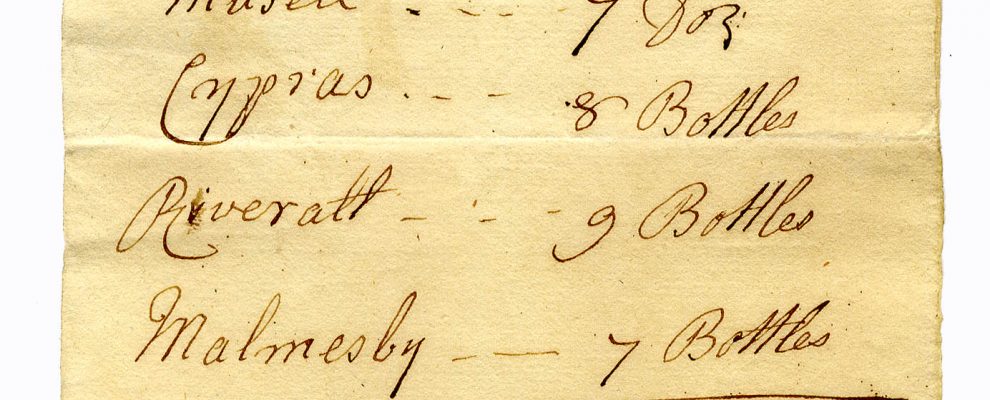Though a luxury, wine was considered essential to maintaining a genteel or aristocratic lifestyle in the eighteenth century. Entertaining with fine wines was considered a convivial habit. The host’s generosity, wealth and taste were reflected in the quality and variety of the wines he had on offer. However, heavy import duties on many wines in the eighteenth century caused it to be a luxury commodity.
German tourist Gebhard Wenderborn noted in 1791 that ‘amongst the hundreds, hardly two can afford to drink wine, and the rest do without.’ Such punitive taxation also meant that there was a significant amount of forgery, but as Wenderborn noted, British drinkers would ‘drink anything for port-wine that is red, and will praise it the more it is mixed with brandy to make it fiery.’
Viscount Fairfax’s bills and receipts highlight his own enthusiasm for fine wines and spirits. His cellars at Fairfax House were full of port, claret, ‘old’ and ‘new’ champagne, Frontignac, Old Hock, Burgundy, Madeira, sherry, brandy, rum, beer and cider. Whilst the Viscount patronised local merchants such as Bluitt’s Inn in York from time to time, his London wine merchant, James Underhill, supplied much of the huge quantities of wines and spirits he ordered.
Fairfax clearly had a discerning palate and was unwilling to accept anything but the very best. When he received a consignment of substandard Burgundy from Underhill, the Viscount fiercely complained. Keen not to lose his custom Underhill replied apologetically, hoping ‘your Ldsp will have the goodness to forgive what is past’. In addition he compensated him with two dozen bottles of his best claret and a further two dozen of his best Burgundy.

Source: Consuming Passions: Shopping for Luxury in Georgian Britain (Fairfax House, 2015)
